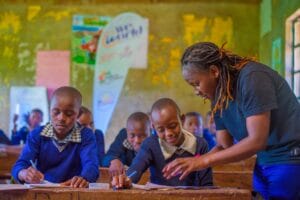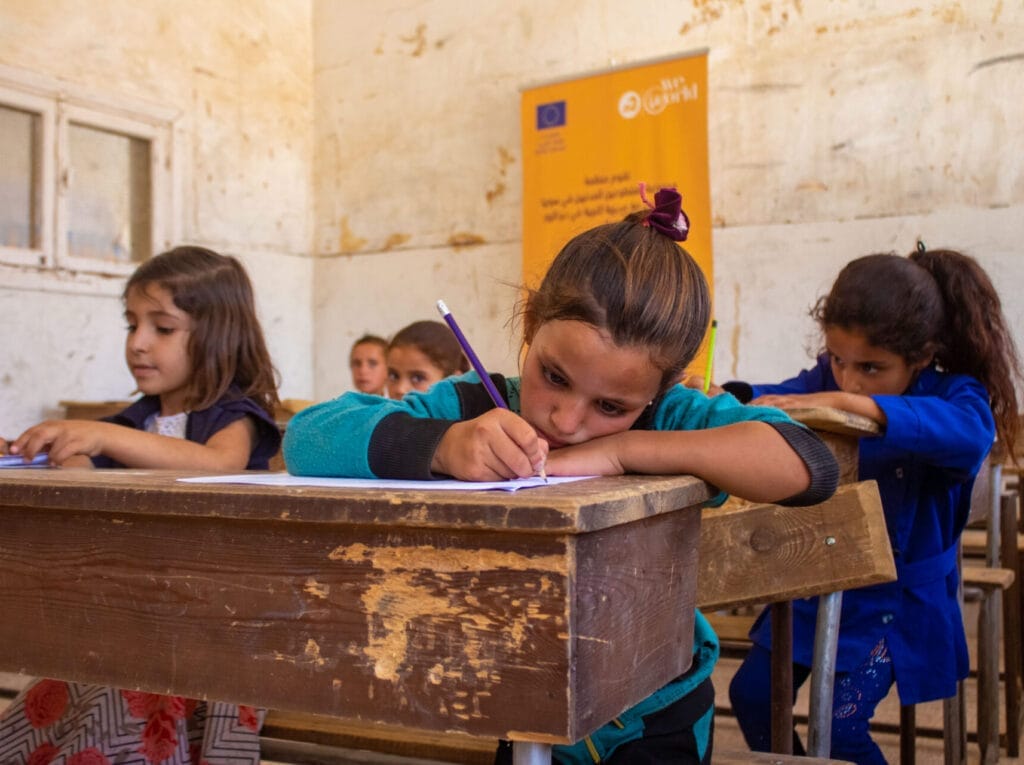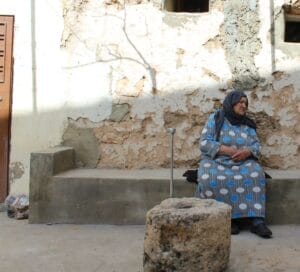
In 2020, the UN General Assembly unanimously declared the 9th of September as “International Day to Protect Education from Attack”. The day aims to raise awareness about the education of millions of children living in countries affected by wars and armed conflicts.
The United Nation Security Council identified and condemned six grave violations that have the greatest impact on children in times of war. They serve as the basis to gather information and report on violations affecting children and are: killing and maiming of children; recruitment or use of children as soldiers; sexual violence against children; abduction of children; attacks against schools or hospitals and denial of humanitarian access for children. All these actions limit and deny boys' and girls' education.
Indeed, in numerous conflicts, schools can be attacked, looted, and used for military purposes; students, teachers, and education personnel are threatened, attacked, or prevented from accessing classrooms; children can be recruited as helpers or soldiers of armed groups. In addition, girls may be more vulnerable for gender-based violence, as rape or early marriages. Furthermore, conflicts can affect the quality of education causing economic crises, inadequate health services, and displaced people.
Moreover, threats to education affect the whole community: education helps individuals make informed decisions, and participate actively in social, political and economic life, contributing to a better society. Thus, school, the heart of education, makes a vital contribution to the community, because it allows us to share and transmit knowledge to the community and between generations.
The African continent is the most affected by armed conflicts: currently, in 12 countries there are terrorist attacks and/or civil wars, involving local, national and foreign forces. In 2021, Africa was the region with the highest total of children living in conflict zones – around 180 million. In Libya, the civil war has been taking place since 2011, in the Central African Republic since 2004, in the Democratic Republic of Congo, conflicts between armed groups date back to the late twentieth century, as in the Sahel, while in Somalia the clashes between the federal forces and Al-Shabaab have been going on since 2006. Today, the current conflicts, which often originate in the violence of colonization and in the processes of decolonization, are struggles for power and resources between opposing factions, which seriously affects the quality and access to education of thousands of children.
In Africa, nearly 2 million children out of school in conflict zones
Worldwide, 1 child out of 4 in need of humanitarian aid lives in Africa. 1.91 million children were being robbed of an education in the region due to violence and insecurity in and around their schools in Burkina Faso, Cameroon, the Central African Republic, Chad, the Democratic Republic of Congo, Mali, Niger and Nigeria.
In 2019, 9,272 schools were closed in West and Central Africa, affecting more than 1.91 million children and nearly 44,000 teachers. The increasing number of children forced out of school due to armed conflicts contributes to a total of 40.6 million primary and lower secondary school-aged children who are out of school in the region.
Nearly 4 million refugees and 7 million internally displaced in Africa are children, due to violence, conflict, poverty, climate change and economic crisis. Forced to flee their homes, boys, girls and adolescents face numerous challenges to return to study. In addition, sub-Saharan Africa, the most affected by armed conflicts, has the highest rates of education exclusion: over one-fifth of children between the ages of about 6 and 11 are out of school, followed by one-third of youth between the ages of about 12 and 14 and almost 60% of youth between the ages of about 15 and 17 are not in school.
The number of boys and girls recruited by armed groups and the schools attacked are other indicators for monitoring how conflicts affect the right to education. The UN Security Council reports that, in 2022, out of 9 countries currently in conflict, there were 416 attacks on schools and 3544 children were recruited by armed groups.
Furthermore, girls are 2.5 times more at risk of being driven out of school than boys in a crisis, due to a greater cultural propensity to sacrifice their education and because girls are more affected by gender-based violence, such as early marriages. During conflicts, early marriage has been used as a “coping or protective mechanism” to sustain the household economy, support the family in difficult times and to save young girls from physical and sexual exploitation. Thus, girls are forced to leave school to get married and get pregnant. In Central and West African, 4 out of 10 girls marry before the age of 18.
WeWorld with children to ensure quality education
WeWorld is committed to protecting and promoting the right to education in crisis and armed conflict contexts. In Africa, we operate in Libya, Niger, Mali, Burkina Faso and the Democratic Republic of Congo, where we have launched various interventions related to the right to education: health, food insecurity, violence and access to education for children, particularly for the most marginalized groups.
Our commitment continues with participation in the ChildFund Alliance, a network of 11 organizations that support children and their families to overcome poverty and the underlying conditions that prevent children from reaching their full potential.
Read more: WeWorld & ChildFund Alliance
In addition, we are part of the coalition "Global Campaign for Education", a network of civil society associations, educators, teachers, NGOs and unions, which aims to mobilize ideas and resources to end exclusion in education. Our mission is to make sure that international community and governments act now to deliver the right of everyone to a free, quality, public education, committing themselves to achieving the objectives of the "The Education for All-Fast track Initiative" (EFA-FTI), a global partnership, coordinated by UNESCO, that wants to ensure quality education to all the children of the world.
For this reason, together with the Italian organizations of the Global Campaign for Education, we have asked Italy to commit itself to protecting and promoting the right to education even in contexts of emergency and protracted crises, through a first contribution of at least 15M€ (3,75M€ per year) for the following 4 years to Education Cannot Wait.
Education Cannot Wait is the United Nations global fund for education in emergencies and protracted crises. In 2021, ECW reached 3.7 million children and teenagers in 32 crisis-affected countries (of whom 48.9% were girls).
Insights: WeWorld Index 2022
Read more: WeWorld Index 2021
What should we do to protect children in conflicts?
Conflicts constitute a significant threat not only to children’s present but to their future too. Their life, rights, especially the right to quality education, and capabilities are put in danger while conflicts occur and in their aftermath. Therefore, it is imperative for all actors, local, national and international, to respect, promote and protect children’s rights.
WeWorld, with ChildFund Alliance, has identified some possible interventions:
- The international community should advocate for global endorsement of all international commitments related to the protection of children and the restriction of weapons and ammunition, as well as increase international cooperation to end conflicts and protect children’s right to safe access to quality education in emergencies and crises;
- National governments should invest in adequate risk assessment for schools and education facilities in sensitive areas, as well as in rapid response, investigation, and fair prosecution of those responsible for attacks or forced occupations. At the same time, they should integrate disaster risk reduction (DRR) into all education sector planning, in collaboration with children, youth, and communities so that said measures can meet their needs;
- All parties involved in conflict should increase efforts to ensure that children receive humanitarian assistance without discrimination and integrate child protection issues in peace processes;
- International criminal jurisdictions should call for prosecutions of perpetrators of grave violations against children in conflict and reparations for child victims, without discrimination.
Finally, all international, national and local actors must invest in the protection and promotion of the right to Education in conflicts and protracted crises. Therefore, WeWorld, together with the Italian organizations of the Global Campaign for Education, asks Italy to contribute financially to the United Nations fund "Education Cannot Wait", to ensure the right to safe access to quality education in conflict zones.



